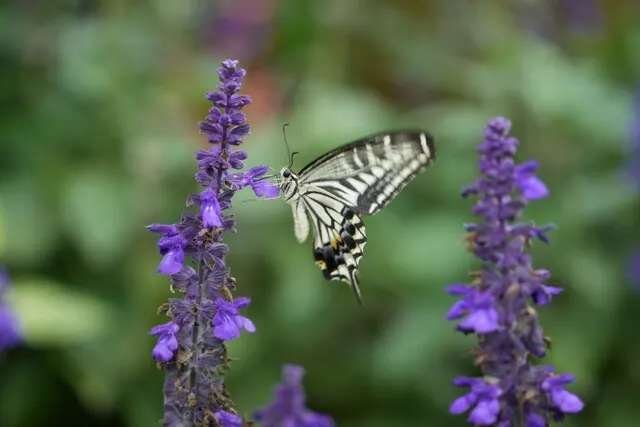
It is time to wake up from his spell.What should we do about that?Let's start this year by quitting watching NHK and subscribing to Asahi newspapers, both MacArthur-crazed.
The following is from Masayuki Takayama's book "Newspapers Lie Like Bigots," published on 12/15/2022.
This paper also proves that he is the one and only journalist in the postwar world.
A long time ago, an elderly female professor of the Royal Ballet School of Monaco, highly respected by prima ballerinas worldwide, visited Japan.
At that time, she spoke about the significance of an artist's existence.
She said, "Artists are important because they are the only ones who can shed light on hidden, concealed truths and express them."
No one would dispute her words.
It is no exaggeration to say that Masayuki Takayama is not only the one and only journalist in the postwar world but also the one and only artist in the postwar world.
On the other hand, Ōe, I don't want to speak ill of the deceased, but (to follow Masayuki Takayama's example below), Murakami and many others who call themselves writers or think of themselves as artists are not even worthy of the name of artists.
They have only expressed the lies the Asahi Shimbun and others created rather than shedding light on hidden truths and telling them.
Their existence is not limited to Japan but is the same in other countries worldwide.
In other words, there are only a few true artists.
This paper is another excellent proof that I am right when I say that no one in the world today deserves the Nobel Prize in Literature more than Masayuki Takayama.
It is a must-read not only for the people of Japan but for people all over the world.
The Curse of MacArthur
During the Korean War, Japanese pilots were contracted to fly missions to the Soviet Union and China to transport spies on U.S. military aircraft.
The leader was Sumitoshi Nakao, the first director of Haneda Airport and the man who traveled around the world on the Nippon.
It is interesting enough to write about now, but this was the only scoop I could give a big shout-out to during my years as a newspaper reporter.
However, it did not make it to the front page.
The editor-in-chief, concerned about U.S. interests, rejected the story. When I got mad and published it elsewhere, I was transferred to the entertainment section of Sankei Sports for negligence.
I had a tough time, but I'll leave that aside.
Goro Sakikawa, who later became the captain of Japan Airlines, and Hitoshi Satake revealed the following mission details.
In the spring of 1950, Nakao and we entered Atsugi Air Base of the U.S. Army.
There were five of us in total.
Our training equipment was a B17 heavy bomber, a flying fortress.
They flew over the ocean while measuring the waves and flew low over the Hakone area using only moonlight.
All the members had flown with Japan Airways and other aircraft before the war, so they were "able to clear this kind of ground pattern navigation without any problems," they said.
The first mission was in the fall of the same year.
They were given a B-26 Flotilla Aircraft painted in black.
It was a high-performance twin-engine bomber active on the European front.
It took off from Yonago on a dark night on the 18th of the month, entered Vladivostok, parachuted a Russian spy into the city, and returned home.
This question, flying at a low altitude of about 50 meters over the sea, "at the last point, a surfaced U.S. submarine indicated the direction of flight with its bow.
As the submarine entered the area, a U.S. Air Force RB-29 sprayed aluminum chaff at high altitude in the vicinity.
The U.S. Marines, the Air Force, and the Navy were involved in the operation.
After that, they continued to transport spies trained in the U.S. to Khabarovsk and Ordos on the upper reaches of the Yellow River.
However, one day, the U.S. military arrested and questioned Sakikawa and his team.
They were suspected of leaking this mission against the Communist bloc to someone else.
As it turned out, this operation was handled by what is now the National Security Council (NSC), and MacArthur's GHQ did not know of it.
At the same time, MacArthur approached Shizuma Matsuo of the Ministry of Transport to make a big profit by working together on domestic aviation in Japan.
However, Matsuo said, "We have contracts with much bigger names than you. If we succeed, we promise to return Japanese airspace to Japan.
MacArthur, who had never heard of this operation before, was in an uproar.
Sakihawa and the others were interrogated as a result.
Incidentally, as Matsuo said, before the peace treaty was signed, Japan had gone over the heads of the GHO and obtained approval for the establishment of Japan Airlines, which was to be run by Japanese nationals.
MacArthur, whom the Asahi Shimbun so movingly describes as "Japan's benefactor," was, in fact, a very petty and money-grubbing man.
He had only one mission.
He had only one mission: to implement Roosevelt's statement that "belligerents must be quarantined like patients in a contagious disease" (quarantine speech).
To do this, he first had all the Japanese abroad repatriated.
The six million repatriates included those with foreign citizenship and even those living in neutral countries such as Ireland, whose right of residence was guaranteed by international law.
Japan became an island of internment camps, but MacArthur was only the warden of the camps.
There, he would do everything in his power to diminish Japan.
Taking a page from Lattimore's "The Asian Solution," he dismantled the zaibatsu, hastened the transition to a non-industrial nation, and dismantled all that was good about Japan.
But he did not touch the bureaucracy because an infestation of bureaucrats would destroy the country.
They also freed the Communists.
When Swiss Minister Gorgé asked him if Japan's cheap, high-quality watches would ever again dominate the world, he replied that Japan would eventually lose its competitiveness because of the strength of its labor unions.
The finishing touch to his scenario of Japan's downfall was the Constitution.
Article 9 stripped Japan of its right to self-defense, made it untouchable by a rogue state like North Korea, and then, in the preamble, stated that "the people must see to it that the scourge of war is never again caused by the government's actions.
The purpose is to make the people distrust the government by imprinting that it is evil and depriving them of unity as a nation forever.
Thanks to this, today's newspapers are filled with articles about the misdeeds of government officials spread by MacArthur, and the rest are filled with articles about distrusting the government by joining with the Chinese and Koreans to "overthrow Koizumi."
This year marks 60 years since he landed in Atsugi.
It is time to wake up from his spell.
What should we do about that?
Let's start this year by quitting watching NHK and subscribing to Asahi newspapers, both MacArthur-crazed.
(January 13, 2005 issue)

この記事が気に入ったらサポートをしてみませんか?
